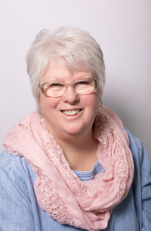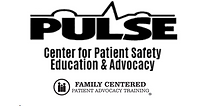Never Go It Alone
- Kathy Casale

- Nov 6, 2025
- 3 min read
Kathy Casale
 |
Never Go It Alone By Kathy Casale
There are times in life that you can or must “go it alone”. A medical crisis is not that time. Even the smartest of people dumb down real fast when faced with a medical crisis for themselves or their loved ones. Confusing medical jargon, acronyms you have no way of knowing, rushed medical personnel who have too little time to really listen to you or encourage your questions. Add all those on top of a frightening diagnosis and you are understandably overwhelmed.
My daughter Martha went for a routine mammogram in May. It came back with some abnormal indications that needed further testing. “Not to worry,” I told her, “This happens all the time, it’s almost always nothing.” I took Martha for more tests and biopsies.
Well, it was not nothing. It was indeed cancer. That phone call stopped us in our tracks. I tried to be reassuring. But, it was scary. Again, I tried to minimize the potential outcomes. But, Martha is smart, she knew the possibilities. Together we tried to lay out a plan for something neither of us had any experience with.
Having dealt with medical emergencies with my husband, I had learned some strategies from my friends at PULSE. Prepare and write down your questions before appointments, don’t be afraid to ask anything and make sure you understand the answers. Write it all down. Get the names and positions of all the medical personnel you speak with. And have someone to advocate for you! Someone who can take those notes and ask those questions when you are too overwhelmed or nervous or intimidated.
Medical personnel can certainly be intimidating. Sometimes you don’t want to seem like you are questioning their judgment. Sometimes they can be patronizing. An advocate can help cut through that. After Martha’s diagnosis, we made appointments to see the breast surgeon. The first one was wonderful. She and her team took all the comprehensive background information they needed, but they were also patient with the dozens of questions we had. They explained each test, what they meant, when we would get the results, and that they were only a call or email away anytime we needed clarification. They gave us the options and time to digest them. They let us know that they could move forward when we were ready, giving us expediency without pressure.
It's always wise to get a second opinion, and we did. The second surgeon was a smart, efficient woman. She lacked warmth and compassion, but we thought those should be secondary to skill and knowledge. Our first red flag was when she did not have all the test results for her review that she should have. She then dismissed that as “unnecessary”. She did agree with the first diagnosis but was less flexible with any options. She was impatient and wanted us to book the surgery then and there.
It felt a little like sales pressure. As I was asking questions, she stood and started to exit the room. When I said I still had more questions, she stood with one foot literally outside the door, clearly annoyed with the infringement on her time. The decision as to which surgeon to use quickly became clear.
I kept a notebook specifically for Martha’s cancer journey. Dates, times, locations, names, positions. Tests, results, and questions we had. Lots and lots of questions. When we have a visit we make sure to ask the questions we brought with us, as well as any that arise during the visit.
We are very pleased with the breast surgeon and the plastic surgeon, their teams, and the surgical center that they used. But had we not been prepared, this would have been an even scarier process. I cannot even imagine how frightening this would have been if Martha had been forced to face it all alone. An advocate can seem like a fancy term for a family member or friend. But it formalizes the intent of the position. Not only is your advocate there for emotional support, but to ensure that questions get asked and answered, the options are explained clearly and are understood, that proper time is being given to the patient, vital information is being tracked, and that respect and empathy is given to the patient.
I am thrilled to report that Martha has come through this process like a champ. I could not be more proud of her. It has not been easy. A double mastectomy is not easy thing to face. But she has done it with grace, courage, and humor. The test results have all indicated that the cancer has not spread and radiation and chemo therapy will not be warranted. We now prep for reconstruction, but the worst is behind us. Martha will live a long, happy life, as she so richly deserves.
Oh, and Martha wants everyone to know…”Get your mammos!” |



Comments